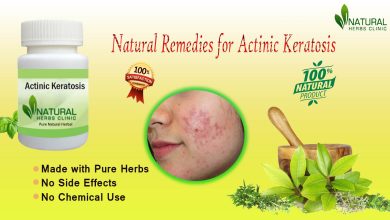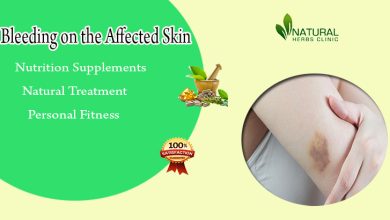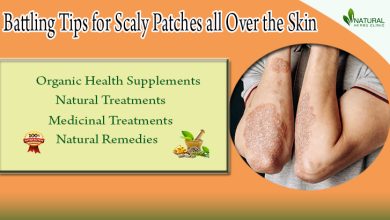Top 10 Actinic Keratosis Supplements You Need to Try Today!
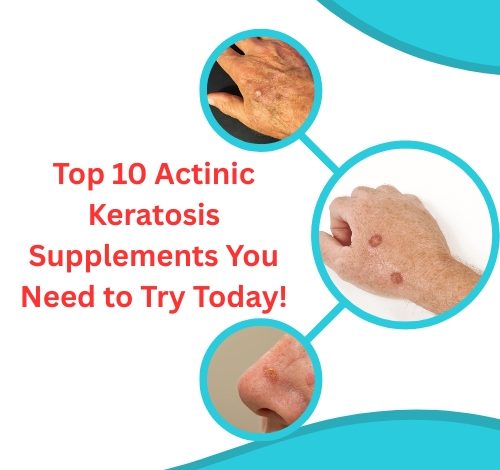
Actinic Keratosis is a common skin condition caused by long-term sun exposure. These rough, scaly patches on the skin may seem harmless at first but can potentially turn into squamous cell carcinoma if not treated. While clinical treatments are essential, many individuals are turning to natural and science-backed Buy Best Herbal Supplements Products and Natural Remedies to support skin health and prevent recurrence.
The top 10 supplements—including some powerful options in herbal treatment for Actinic Keratosis—that may help reduce lesions, support DNA repair, and strengthen your skin’s defense against UV damage.
What is Actinic Keratosis?
Actinic Keratosis is a precancerous skin condition that appears as rough, scaly patches on areas of the skin that have been exposed to the sun over many years. It is also known as solar keratosis.
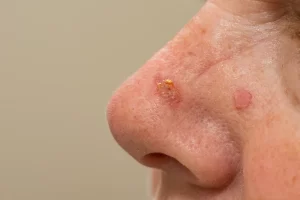
Key Facts About Actinic Keratosis:
- Cause: Long-term exposure to ultraviolet (UV) radiation, usually from the sun or tanning beds
- Appearance: Small, dry, scaly, or crusty patches—often pink, red, or skin-colored
- Common Areas: Face, ears, scalp (especially in bald men), hands, neck, and forearms
- Risk: Can develop into squamous cell carcinoma, a type of skin cancer, if left untreated
- Who’s at Risk:
- People over age 40
- Fair-skinned individuals
- Those with frequent sun exposure
- People with weakened immune systems
Why It Matters:
While Actinic Keratosis is not cancer, it is considered a precancerous lesion, meaning it has the potential to turn into cancer if ignored. That’s why early detection and treatment are crucial.
Common Treatments Include:
- Cryotherapy (freezing the lesion)
- Topical creams (like fluorouracil or imiquimod)
- Photodynamic therapy
- Laser therapy
- Natural support: Some people use Actinic Keratosis supplements and Herbal Supplement for Actinic Keratosis to support skin health and prevent further damage
Related Articles: 11 Natural Treatments for Actinic Keratosis
Top 10 Actinic Keratosis Supplements
Actinic Keratosis (AK) is a skin condition caused by long-term sun exposure. It appears as rough, scaly patches and can potentially turn into skin cancer if untreated. While medical treatments are essential, supplements can support your skin’s health and help reduce the recurrence of lesions.
Here are the top 10 science-backed supplements for managing and preventing Actinic Keratosis:
1. Nicotinamide (Vitamin B3)
Why it works:
Nicotinamide has been shown in clinical studies to reduce the number of new Actinic Keratosis lesions by up to 23%. It enhances DNA repair and helps the skin recover from UV damage.
Suggested Dose: 500 mg twice daily
Backed by: The New England Journal of Medicine
2. Curcumin (Turmeric Extract)
Why it works:
A powerful anti-inflammatory and antioxidant, curcumin targets free radicals and may prevent precancerous cell growth.
Suggested Dose: 500–1000 mg daily with black pepper (piperine) for absorption
Category: Herbal Treatment for Actinic Keratosis
3. Green Tea Extract (EGCG)
Why it works:
Green tea polyphenols, especially EGCG, protect against UV-induced skin damage and can be taken orally or applied topically.
Suggested Dose: 300–400 mg daily
Tip: Choose decaffeinated extracts for high EGCG content without side effects
4. Polypodium Leucotomos
Why it works:
This tropical fern extract has been shown to protect the skin from sun damage and reduce inflammation caused by UV radiation.
Suggested Dose: 240–480 mg per day
Usage: Best used as a daily sun defense supplement
5. Milk Thistle (Silymarin)
Why it works:
Rich in antioxidants, silymarin helps fight oxidative stress and may reduce the risk of lesion progression.
Suggested Dose: 200–400 mg of standardized extract
Category: Herbal Treatment for Actinic Keratosis
6. Vitamin D3
Why it works:
Vitamin D plays a role in skin cell growth and repair. Studies suggest that optimal levels may be linked to lower risk of skin lesions.
Suggested Dose: 1000–4000 IU daily (based on your vitamin D level)
Caution: Get tested before supplementing long-term
7. Omega-3 Fatty Acids (Fish Oil)
Why it works:
Omega-3s have anti-inflammatory effects and may support the immune system in fighting abnormal skin cell growth.
Suggested Dose: 1000–3000 mg of EPA/DHA daily
Tip: Choose high-purity, mercury-free fish oil
8. Resveratrol
Why it works:
Found in grapes and red wine, resveratrol has anti-cancer and anti-inflammatory properties that may benefit UV-damaged skin.
Suggested Dose: 100–250 mg daily
Bonus: Also supports cardiovascular health
Related Articles: Actinic Keratosis Natural Treatment
9. Zinc
Why it works:
Zinc is essential for skin healing, immune function, and DNA repair—all vital in managing and preventing Actinic Keratosis.
Suggested Dose: 15–30 mg per day (do not exceed 40 mg unless prescribed)
Form: Zinc picolinate or zinc citrate for better absorption
10. Lycopene
Why it works:
A carotenoid found in tomatoes, lycopene helps neutralize UV damage and may protect against sun-induced skin changes.
Suggested Dose: 10–30 mg daily
Best Source: Tomato extract or cooked tomatoes with healthy fat for absorption
Final Thoughts
While these Actinic Keratosis supplements offer promising support, they should be viewed as complementary—not replacements—for medical treatment. When combined with sun protection, a healthy diet, and regular skin checks, these supplements (especially those from the Herbal Treatment for Actinic Keratosis category) can help you take control of your skin health naturally and effectively.
Always consult a dermatologist or healthcare provider before beginning any supplement regimen—especially if you are taking medications or have preexisting conditions.

